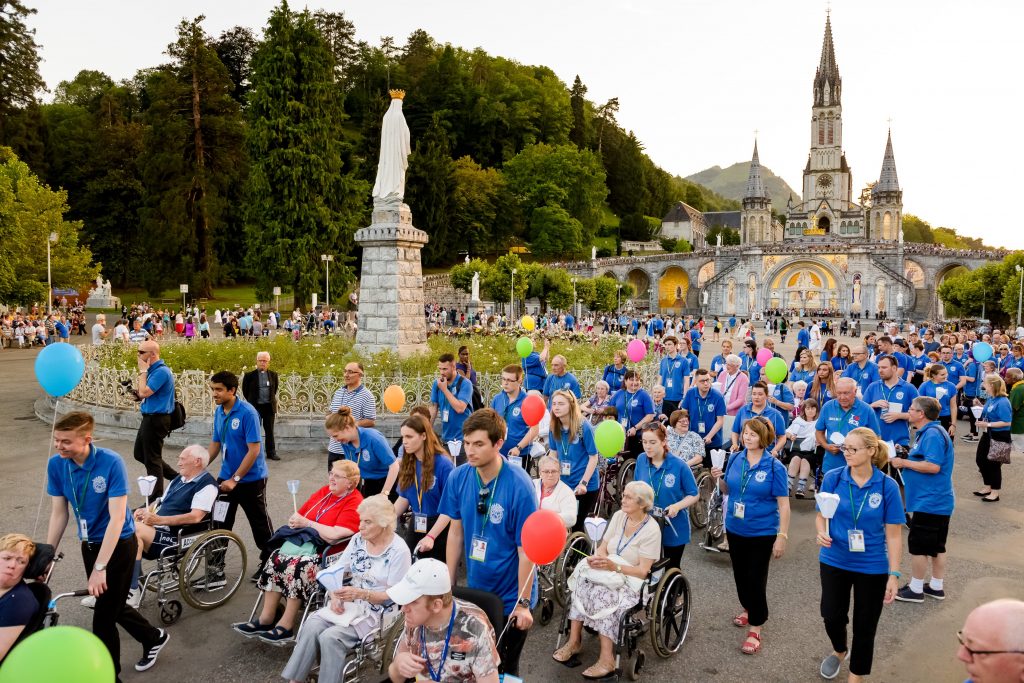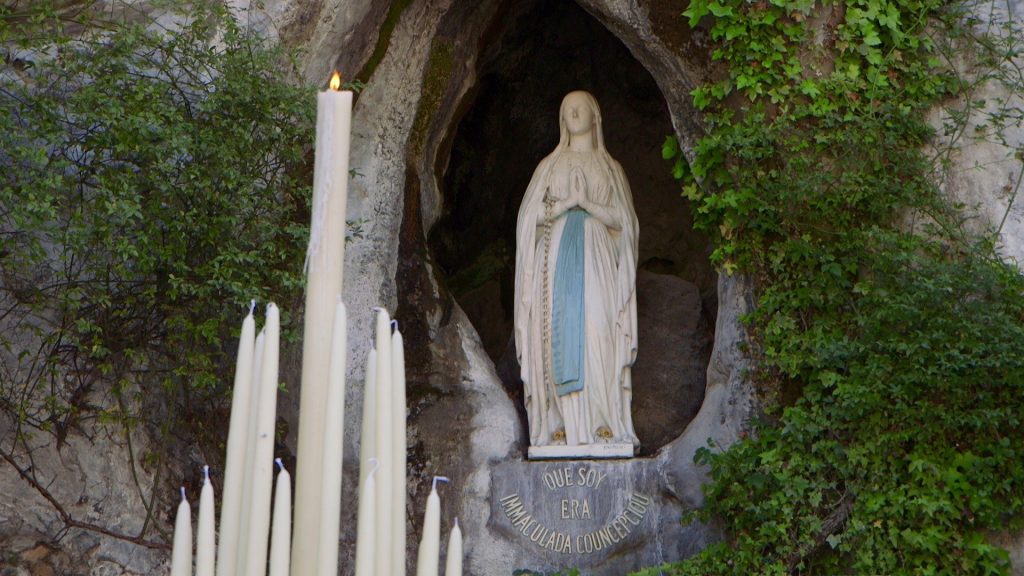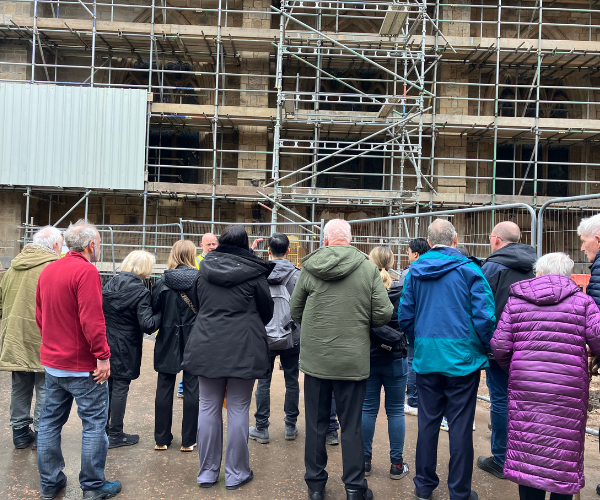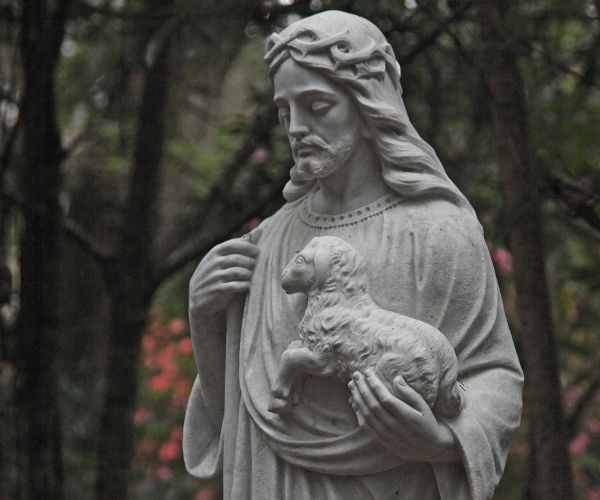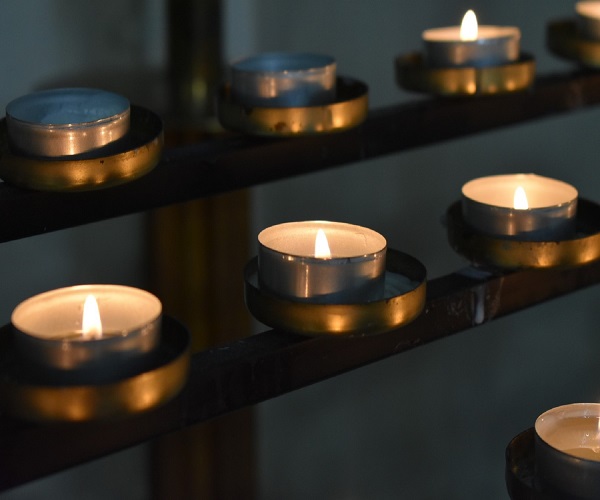
The Power of Pilgrimage: A Medical Study into the Healing Influence of Faith
Thursday 21st October 2021A ground-breaking research project looking into the transformative impact of Lourdes has scientifically proven the power of pilgrimages.
The Journal of Religion and Health has recently published a medical study looking at how people’s quality of life has been impacted by our diocesan pilgrimage to Lourdes.
This innovative study was undertaken by Dr Jennifer Klimiuk, a consultant in palliative medicine and our current medical director for the diocesan pilgrimage to Lourdes, with the assistance of her colleague and our previous medical director, Dr Kieran J. Moriarty.
Entitled ‘The Lourdes Pilgrimage and the Impact on Pilgrim Quality of Life’ , the paper reveals some remarkable findings on the healing influence of faith.
The study, which took a lengthy 11 years to complete, examined the experiences of more than 90 – predominantly Roman Catholic – people attending our six-day pilgrimage to the French town in 2015 – the 83rd Lourdes pilgrimage organised by our diocese.
It asked pilgrims with a range of illnesses and disabilities to self-assess their overall health and wellbeing, and to give themselves an overall score before, immediately after, and two months after their pilgrimage. A secondary part of the study asked them to evaluate which aspects of the pilgrimage they found particularly beneficial, whether it was the spiritual or religious aspects of pilgrimage, a sense of togetherness, a sense of spiritual, psychological, or physical healing, the relationships formed during the pilgrimage, or the aspect of a holiday.
Dr Klimiuk explained that this was an essential aspect of the study, allowing her to explore for the first time whether the spiritual impact of the experience could have a transformative effect on physical or psychological health.
She said: “I wanted to do a project looking at the quality of life of people who went to Lourdes and see if there was a way we could measure that, and if there was a way we could prove that actually, people’s quality of life does improve.”
Revealing Results
Results from the study revealed that 67.5% of respondents reported their self-rated quality of life immediately after the pilgrimage as being much better or better than before, with 28.2% of people saying it was the same, and just 2.8% saying it was worse than before (the remaining percentage was discounted due to an incomplete form).
However, these figures dropped a little two months after the pilgrims’ return, but still saw more than half (54.7%) reporting that they felt much better or better than before, 35.9% said the same, and 6.3% said worse (again, the remaining 3.1% were discounted due to incomplete forms).
When asked which aspects of the pilgrimage people found to be most beneficial, the spiritual and religious aspects of pilgrimage, a sense of togetherness and being with others, and a sense of spiritual healing were the most common answers.
Dr Klimiuk said: “There were some positive results, so that was great because it did show some statistical evidence that there was some improvement. But I think what I was really interested in was the qualitative side, so looking at what pilgrims actually felt benefitted them.
“A lot of people used to say to me “well, don’t they just have a holiday? Isn’t that what benefits them?” But it showed in the paper that the things people found beneficial weren’t aspects of a holiday. It was the other things that are unique to Lourdes: the sense of togetherness, and the spiritual aspects.”
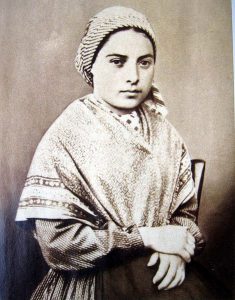 As one of the world’s most famous pilgrimage sites, Lourdes welcomes approximately six million pilgrims – many living with either physical or mental illness – from across the world each year, to pray at the site where Our Lady first appeared to Saint Bernadette Soubirous in 1858.
As one of the world’s most famous pilgrimage sites, Lourdes welcomes approximately six million pilgrims – many living with either physical or mental illness – from across the world each year, to pray at the site where Our Lady first appeared to Saint Bernadette Soubirous in 1858.
To date, only 70 cures at the site have been confirmed by the Roman Catholic Church as being miraculous or “medically inexplicable”, the latest being Sister Bernadette Moriau in 2008.
“The thing that I wanted more than anything was to show other people who didn’t believe or understand that something happens here.”
Declared miracles are subject to intense and rigorous examination but there is a strong feeling among Lourdes pilgrims that visiting the shrine positively impacts each and every person in some way, highlighting the concept of “mini-miracles” and improved wellbeing.
Dr Klimiuk said: “I think a lot of people misunderstand Lourdes and why people go, particularly a lot of people who have never been. They ask if you’ve seen lots of miracles because they understand there’s been a lot of reported cases of people who have undergone miraculous healing, which has been proven.
“It’s about saying yes, those things happen and that’s amazing but there’s more than that happening – every single day, every minute of the day while you’re there. Just because you go to Lourdes and don’t experience physical healing, it doesn’t mean that you don’t come away from it having received some kind of healing.”
As such, a major part of the study explored the concept of positive religious coping, where a person’s faith can have a very real effect on how they cope with illness or other difficulties.
Dr Klimiuk explained: “Perhaps nothing has changed when you’ve got home, but actually, you’ve changed. It is a little bit about taking up your cross, and acceptance, but also an understanding that you’re not alone. There are people – and obviously your faith – there with you and having that for many people means that they can then cope much better with their illness and experience their illness in a different way.”
Having set out to scientifically prove the power of pilgrimage and the unique sense of transformation people experience whilst in Lourdes, Dr Klimiuk hopes her study will help people think a little differently about Lourdes, to open their minds to possibility of all kinds of healing, and to inspire others to experience this for themselves.
She said: “The thing that I wanted more than anything was to show other people who didn’t believe or understand that something happens here. Whatever you think that might be – whether you feel it’s God and faith, or whether you believe it’s a great experience to go with other people and share in this, or whatever – that there is something very special about Lourdes and it really helps people. I wanted to show that to the scientific world because I knew and believed it from everything I’ve seen.
“Lourdes – it’s so hard to explain to somebody what’s so good about it, but hopefully we’ve put into scientific language that this is a powerful place. It’s undoubtedly a powerful experience.”
The Lourdes Pilgrimage Team would like to acknowledge that this research has now been made available for free by funding from the Diocese of Salford and in memory of Ms Celia McNicholas JP.
Tagged | Catholic Church | Lourdes

